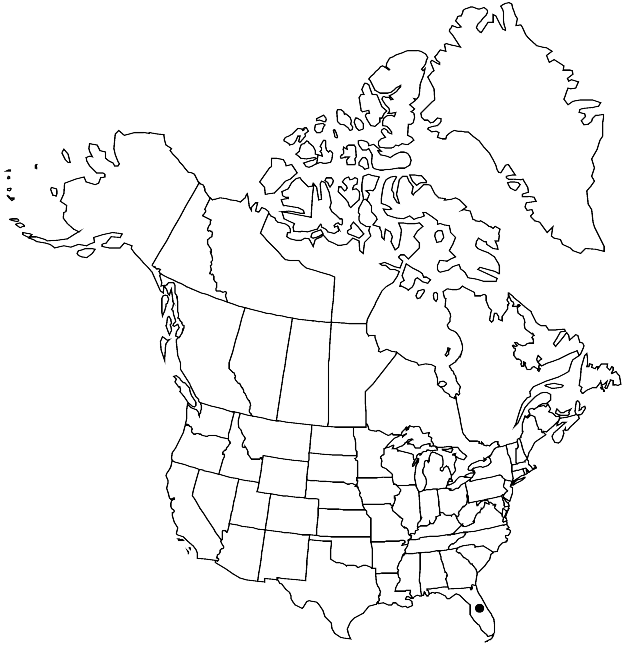Cyrto-hypnum schistocalyx
Contr. Univ. Michigan Herb. 17: 67. 1990.
Stems regularly 2-pinnate, stems and branches smooth; paraphyllia 2–8 cells in length, cells 1:1, papillose. Stem leaves appressed when dry, broadly triangular, (0.2–)0.3–0.4(–0.5) mm; apex gradually and broadly acuminate, sometimes piliferous; costa 5/6 leaf length. Branch leaves incurved-appressed when dry, 0.1–0.2(–0.3) mm; apex acute to obtuse; costa 3/4 leaf length, straight, covered with quadrate cells apically, projecting as low crests. Perichaetial leaves with margins strongly flexuose-ciliate. Seta papillose. Capsule with endostome cilia 1 (or 2).
Phenology: Capsule maturity unknown.
Habitat: Moist forests, limestone, base of trees
Elevation: low elevations
Distribution

Fla., Mexico, West Indies, Central America, n South America.
Discussion
Cyrto-hypnum schistocalyx, an essentially tropical species, is distinguished by the ciliate perichaetial leaves and roughened seta. The species occurs in Dade County; south of the flora area it occurs from sea level to 200 m elevation.
Selected References
None.